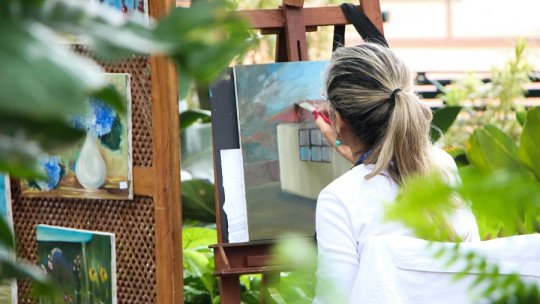
There is a moment in the coaching process when clients are faced with a simple but profound question: What do you want more of in your life? What is the goal?
That question is followed by a moment of silence, a deep breath, a readjustment in the chair, moving the head from side to side, and finally the release of the words: “I just want to be happy…”
Does it resonate with you? Because I do. It is so attractive… however, I must tell you, it is a statement that is accompanied by some nuances that deserve a reflective pause. Let’s see.
What about wanting to be happy?
When you say out loud “I want to be happy,” you choose to put on a specific type of glasses to contemplate life: you are selecting a perspective to interpret experiences and guide your decisions.
Let’s give some examples. Imagine a person whose goal is to be happy. So what do you choose to eat tonight? How do you address your child’s school problems? How do you deal with a difficult conversation at work? How do you manage grief? How do you make difficult decisions?
With these questions, I’m trying to put you in everyday situations that require answers that don’t just fall within the spectrum of the “I want to be happy” perspective. By adopting that “mono perspective”, we could say that you decide to ignore all the colors of life and therefore limit the experiences available in it.
The invitation is then to recognize that life offers a much broader field of vision than can be seen when happiness is set as the objective. The real work begins by expanding the range of vision: putting aside the glasses that focus on happiness as a goal and exploring new possibilities that nourish life experiences, both the pleasant and the challenging.
The change of perspective
First of all, a change of perspective or a paradigm shift is needed: Happiness is not a goal, it is a consequence
You may have heard this premise on some occasion, however, it is something that we must continue to practice and remember: happiness manifests itself as a result of actions that have deep meaning for us, not as a goal in itself.
Quoting Viktor Frankl, pioneer of logotherapy or meaning-in-life therapy: “Happiness cannot be pursued; it must happen. One must have a reason to be happy.”
These reasons, according to Frankl, are found by honoring our values, that is, those things that are fundamental to us and that we express in our actions, relationships, environment, and what we share with others.
When our actions are aligned with our authentic identity we are likely to experience satisfaction and fulfillment, even in difficult times.
Let’s take a still recent example, remember your experiences during the pandemic, you will find many decisions you made, some sacrifices probably, but now, from a certain distance, it is already possible for you to recognize learnings that continue to give you energy to move forward.
Practical resource: give space to self-knowledge
The complexity of dismantling deep-rooted beliefs requires courage and perseverance, but the process can be deeply transformative, so I invite you to take action with a simple exercise in self-knowledge.
Make space for yourself, reduce stimuli and Enter into a dialogue with yourself, without judgment, allowing curiosity to be your guide Take paper and pencil. Write as the title of the sheet, what matters to me, then make a list answering these couple of questions: What makes you vibrate? What are you passionate about?
Now, take a new piece of paper and write by title, which I do. Observe your day to day. You can look at your agenda and answer the following questions: How much time do you spend on those activities that are genuinely important to you? It’s enough? Or are there opportunities to prioritize what gives you meaning?
I encourage you to commit to small actions that bring you closer to that congruence between your values and your daily life. It could be dedicating specific time to a passion, setting healthy boundaries, or exploring new experiences.
Be patient, each step leads you to a deeper connection with yourself and a fuller life where you can connect with moments of happiness and meaning, as stable states in your mood and not, as an unattainable goal.








